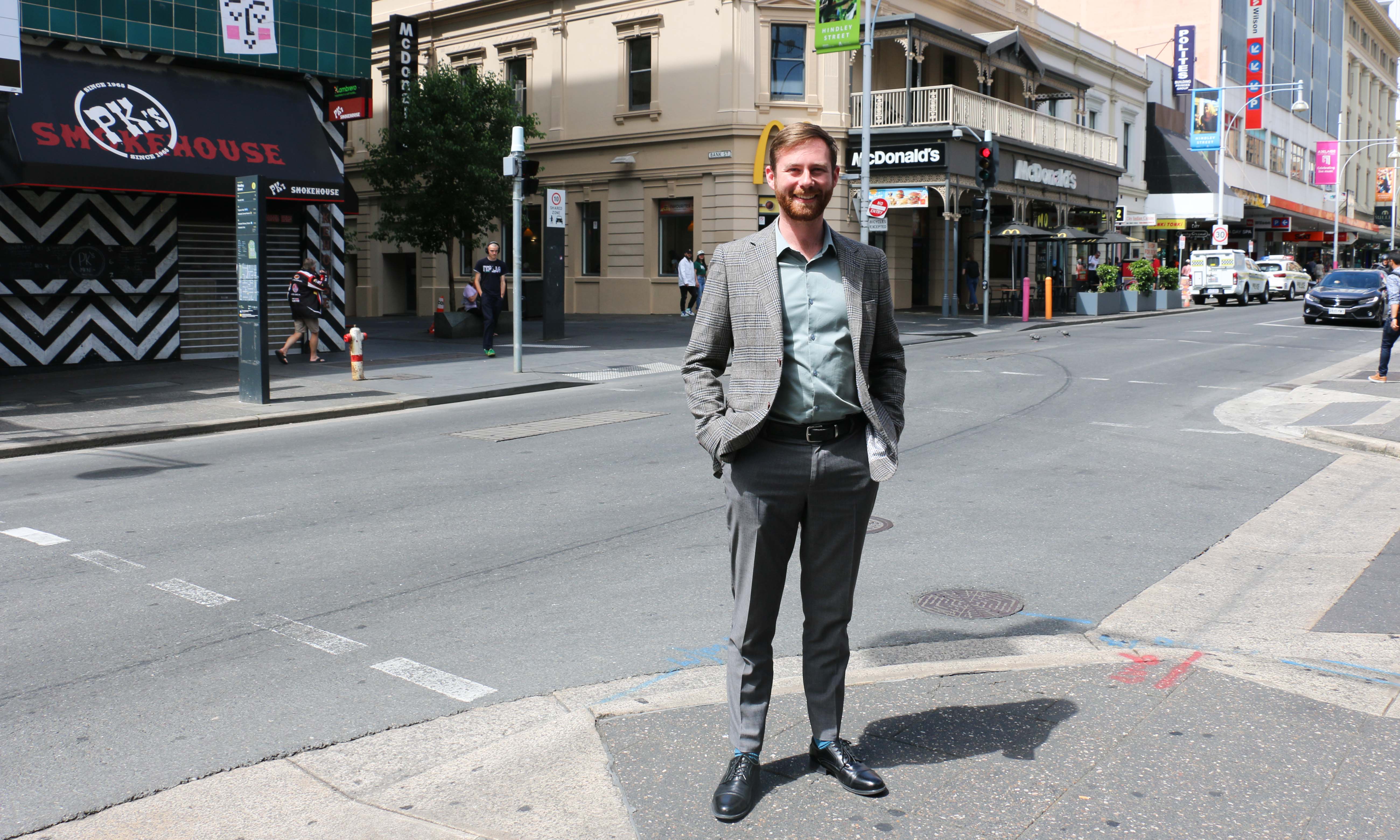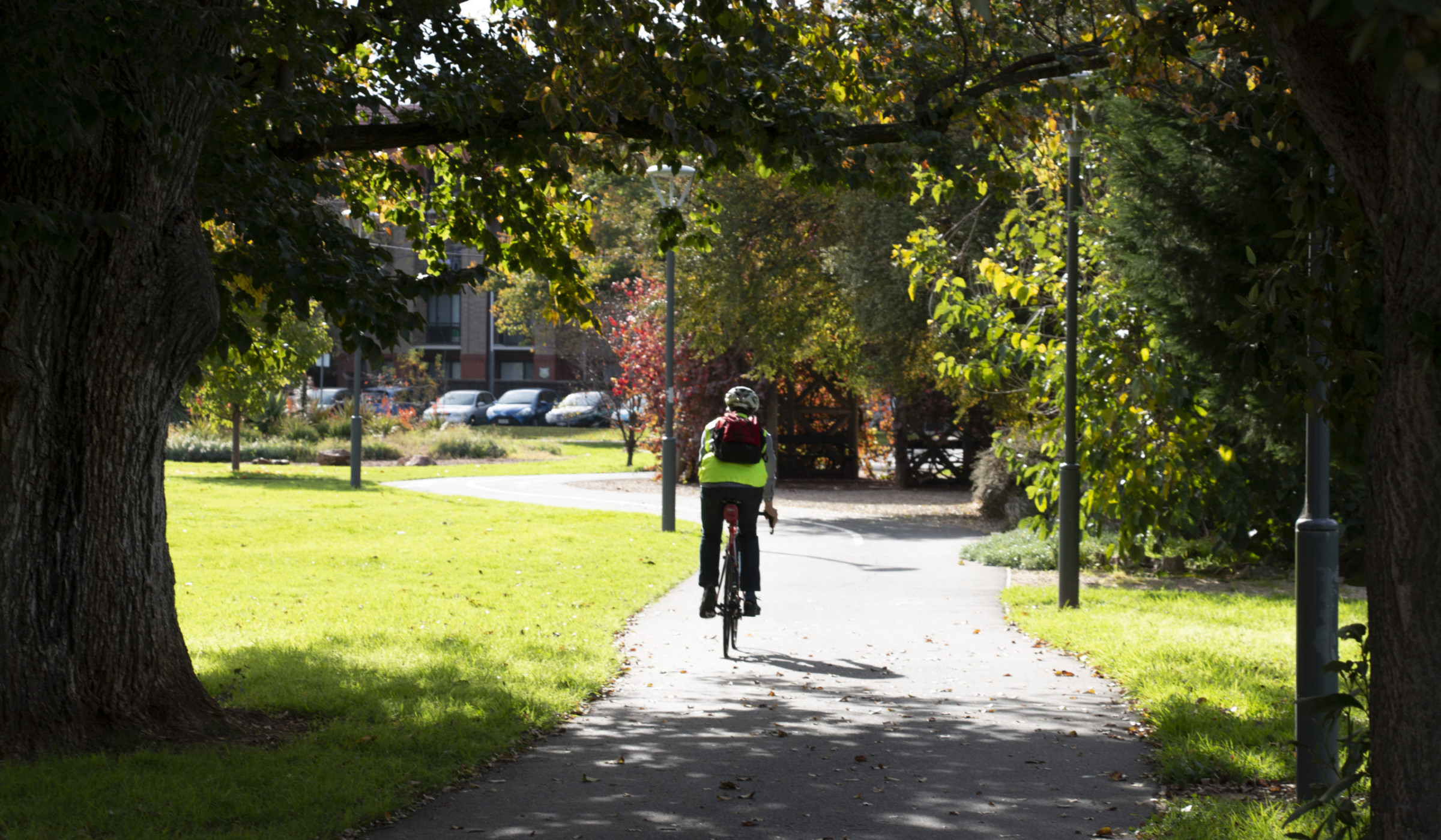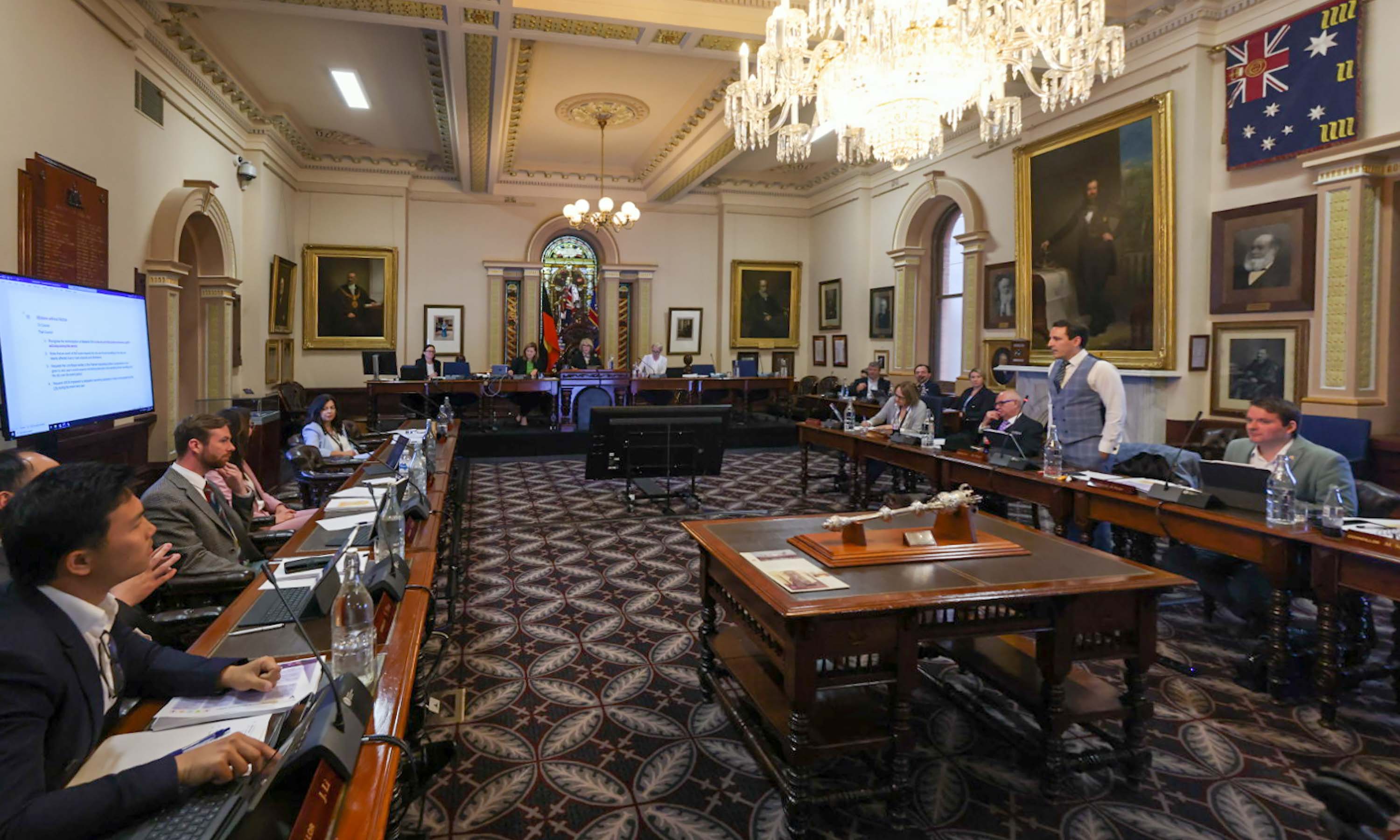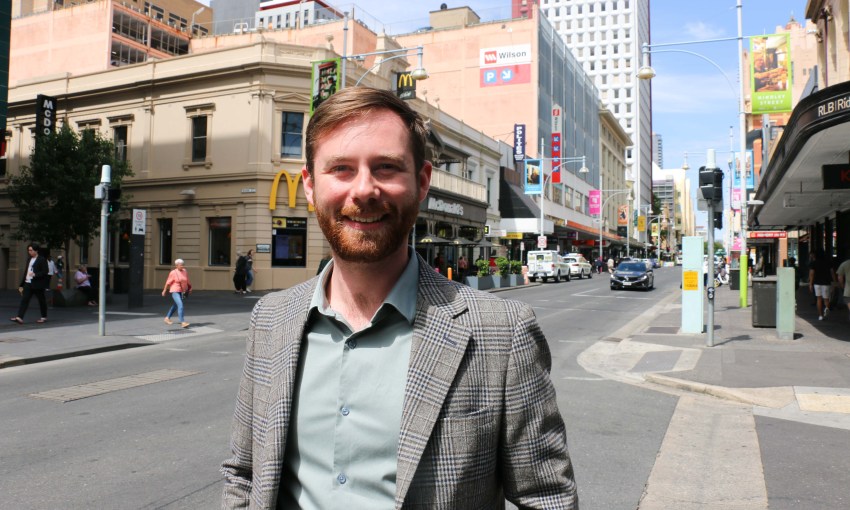The Adelaide City Council always seems to have one elected member hellbent on building better bicycle infrastructure. For the class of 2022, it’s David Elliott, who wants to trial lowering speed limits for troublesome thoroughfares such as Hindley Street.
Meet David Elliott: Council’s new cycle guy
David Elliott cops to being the Adelaide City Council’s new active transport champion — an enduring trope of contemporary Adelaide Town Hall.
Surprisingly, though, he doesn’t cycle to work.
New here? Sign up to receive the latest happenings from around our city, sent every Thursday morning.
Sitting at Leigh Street’s Coffee Branch, sipping on an oat cappuccino, the recently installed central ward councillor says he’s had too many near-scrapes with cars to confidently cycle to his office.
Instead, his daily commute to Parliament House, as the office manager of Labor MLC Ian Hunter, is a 10-minute walk.
“I live near Light Square in the West End,” David says.
“There’s a bike lane on Waymouth Street, which is my street, but it’s almost always blocked with turning cars, delivery vehicles illegally parked, and so you’re constantly forced back into traffic, which in peak hour doesn’t move.
“Then you get to King William [Street] and there’s buses and taxis and everyone turning.
“I’ll only ever ride my bike to work if I’ve got a meeting somewhere that requires a bit more expeditious transport – or I’m running really late.”
David got 337 first preference votes in the 2022 Adelaide City Council general election and was the third elected member for the spot.
He says he was frustrated with the former elected body not delivering the east-west bikeway, and the slow progress to finish the last leg of the Frome Street cycleway. These frustrations convinced him to toss his hat in the ring.
Despite numerous attempts to construct the east-west cycleway, with money allocated by the State Government for the project, the Adelaide City Council voted down the long-touted route. Current Deputy Lord Mayor Phillip Martin referred to the council’s decision to knock back the proposal at the time as “an utter failure of leadership”.
—David Elliott
In September, we reported that the former Adelaide City Council elected body had approved procurement activities for the 2022—23 financial year. One of these activities included putting out a $2 million tender for a contractor in November to construct the final portion of the Frome Street bikeway, near the city’s tallest building, The Adelaidean.
Director of city services at the City of Adelaide, Tom McCready, tells CityMag the section of the north-south bikeway between Rundle Street and North Terrace is “currently being finalised”.
“Procurement will commence in January 2023 with construction starting in April after the Adelaide Fringe and Adelaide Festival,” he says.
“Council is working closely with the State Government to provide a safer cycling network across the city, with several key stakeholders in this section needing consideration.
“As with all of Council’s commitments, we are keen to deliver on this project in a timely manner, and with minimal disruption to city users.”
David will remain eagle-eyed on this project.
“It’s all gone quiet again,” he says. “I will definitely be pushing for that to be completed.
“It’s an unnecessary missing link and that project (The Adelaidean) that was blocking that completion has been finished for well over a year now. There’s just not really much of an excuse not to finish those gaps.”
David, who previously worked as an intelligence analyst in the Air Force and for the Fair Work Ombudsman, sits on a range of committees that advocate for improved cycling infrastructure and environmental protections.
He is the chair of Bike Adelaide, the main voice advocating for cycling in metro Adelaide, and is a former Unley Bicycle Group chair. He is a co-convener for the Labor Environment Action Network and is a member of the Labor Party’s SA Branch, according to his candidate profile.
Now, as a councillor, he joins the growing list of cycling proponents to have graced the chamber – a legacy kicked-off by Robert Simms and Helen Donovan.
When we ask David why this stereotype exists, he posits it could be a reaction to the council always putting motor vehicle transport on a pedestal.

The council’s new cycle guy hopes to be more successful than his predecessors
On behalf of Bike Adelaide, David submitted a response to Parliament’s Select Committee on Public and Active Transport. This is a recently established body partly tasked with exploring e-scooter regulation. But it also looks at other modes of transport, such as “measures to improve safety for pedestrians and cyclists”, the website states.
In David’s Bike Adelaide response, he outlined perennial sore spots for those getting around on two wheels, such as the under-funding of infrastructure, negative driver behaviour towards cyclists and the government’s spotlighting of cycling as a recreational activity rather than a mode of transport.
But the submission also included a bold proposal to lower speed limits in metropolitan Adelaide. The document says the community had expressed “significant appetite” for the idea, and as David’s role as an elected member, he wants to pursue this on a city level.
“It’s one of the easiest and most effective ways that we can make our cities safer,” says David, who also has training as a geographer and sociologist.
“And I know there is interest from people within the community to make our city safer.
“We got the community behind lowering speed limits when we saw the State Government push for changes around primary schools in the city south, and that was a big thing.”

A cyclist zipping through the Adelaide Park Lands
David envisages this proposal rolling out with trials. The experiment will focus on “high-activity” precincts, such as Rundle and Hindley streets, but David will look to the administration for suggestions on the lengths of the trials and the speed limits.
Should he get the support of the elected body, David wants the administration to review the organisation’s relationship with car parking and potentially increase rates, which have been frozen for nine years. This will be key to the bigger exercise of reshaping the organisation’s revenue-raising activities.
—David Elliott
“It absolutely needs to be reviewed,” David says. “It’s non-negotiable at this point.
“The vulnerability that was demonstrated from relying so heavily on car parks was demonstrated during COVID when visitation just bottomed out completely.
“No one was really coming into the city except for essential workers, and we really kneecapped ourselves economically.
“We have nearly twice as many car parking spaces as Melbourne and we have almost more car parking spaces [than] Sydney and Melbourne CBDs combined, which is huge. And when we know how cheap it is, and how much we are reliant on that revenue, and how vulnerable we are to fluctuations, it’s a really unstable economic model.
“The best thing we can do is to review rates to potentially increase them, whatever the recommendations may be from whoever conducts that review. But it’s clear that after nine years, it probably needs to be changed.”

The Adelaide City Council class of 2022 at Town Hall. This picture: Tony Lewis
When we ask David what achievements would make him feel proud after four years in the chamber, he says building an east-west bikeway would be massive. Not just in terms of getting the elected body to sign off on a route, or getting the funds, but in shaping people’s perceptions about the underdog mode of transport.
“One bikeway is a bit of a small achievement, but for Adelaide that signifies a major step forward in recognising that we have changes in travel needs, and we have changes in the way that we have our awareness and engagement with environmental issues, and our health needs,” he says.
“It’s an attitude change, and I think that cultural shift that comes from it would be a really fantastic achievement embedded in that bikeway.
“If I can get that, I think it signifies a lot bigger things.”




